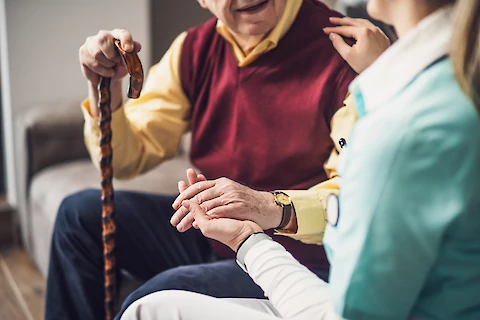
Seasonal Affective Disorder, commonly known as SAD, is an important and often under-recognized health condition that can significantly disrupt quality of life, particularly among seniors. It is a disorder that typically manifests during the year's shorter, less sunny days. It is essential that we spread SAD awareness and acknowledge its impact since symptoms can be hard to recognize, especially for seniors. Here, we provide an overview of SAD and aim to help those affected navigate through it with resilience and positivity.
SAD and Seniors
SAD magnifies its presence during the shorter, darker days of the year, usually in the winter season when sunlight is at a premium. Seniors' susceptibility to SAD tends to increase at this time due to various factors, including decreased mobility, isolation, or underlying health conditions. Aging can worsen SAD symptoms due to changes in circadian rhythms or medication affecting sleep patterns.
Symptoms of SAD in Seniors
Developing SAD awareness and management skills involves recognizing the symptoms of the condition as the first proactive step. Some of the symptoms include:
- A cyclic pattern of depressive symptoms that coincide with the changing seasons
- Persistently low mood, a loss of interest or pleasure in activities, and low energy levels
- Sleep disturbances, appetite changes, or persistent feelings of sadness, worthlessness, or guilt
It is essential to watch out for these signs in oneself or the seniors around us. Prompt intervention can prevent these symptoms from escalating into major depressive episodes.
Managing SAD in Seniors
There are multiple strategies available to manage SAD effectively. Here are a few to consider:
Light Therapy
Light therapy has been shown to have substantial benefits in treating SAD. The light replicates natural sunlight and helps to regulate mood and sleep patterns. It is thought to be most effective when combined with other SAD treatments like antidepressants or talk therapy.
Regular Schedule
Maintaining a consistent schedule can provide a sense of stability and control. It inherently reduces anxiety and depressive symptoms. Sleeping and eating at predictable times of the day benefit the circadian rhythm and can help avoid the tendency to overeat.
Staying Active
Staying active, whether it is a stroll down the street in the evening or light indoor exercises, can be significantly beneficial. Physical activity improves overall health, boosts mood, and acts as a natural antidepressant. Always consult with healthcare providers before starting any new exercise routine.
Role of In-Home Caregivers in Sad Awareness and Management
In-home caregivers can play a crucial role in SAD awareness and management, especially for seniors who are grappling with this condition. Here are just a few ways they're invaluable:
- Implement effective strategies to manage SAD and improve the quality of life for seniors.
- Provide a structured routine, ensure regular meals, and facilitate bodily movement to help mitigate SAD's impact.
- Encourage and accompany seniors on walks or oversee light therapy sessions.
- Give both physical and emotional support.
- Observe and report any changes in behavior or mood that may indicate worsening SAD symptoms and ensure timely intervention.
Senior Helpers Can Help With SAD
Senior Helpers can deliver personalized in-home care services that cater to unique SAD awareness and management requirements. If you live in the Peachtree City, Atlanta, Newman, or Fayetteville areas, contact us today at Senior Helpers Peachtree City. Our professional caregivers are trained to provide compassionate care and enhance the quality of life for our community's seniors.